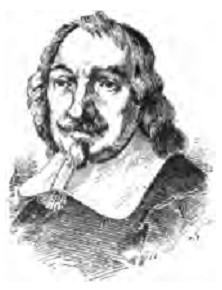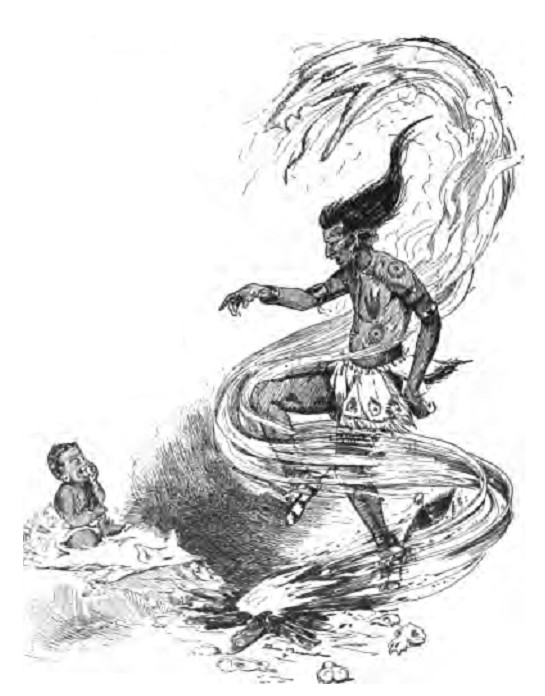| Web
and Book design,
Copyright, Kellscraft Studio 1999-2009 (Return to Web Text-ures) |
 (HOME)
|
II. THE MAINE INDIANS.
THE Maine Indians, divided into two great tribes, the Etechemins and the Abenaques, were all descendants of the Mohicans, and the Mohicans were descendants of the Lenape, or "original people," as they called themselves. The Lenape migrated eastward from the Pacific Ocean many hundred years ago. In ancient Indian traditions it is related that the race originated in the West. All their tales of lost glory and greatness cluster about the land of the setting sun. The Lenape wandered to the Mississippi River, where they found other tribes, who were pilgrims from another country,—always the West. Fighting with some tribes, and allying themselves with others, they traveled on to the Hudson River, which they called the Mahicannituck; and from this they received their name, naturally misspelled and mispronounced, after the white people appeared, until it became "Mohicans" and "Mohegans." A body of these Indians crossed the Hudson and gradually overspread the country that is now New England. Their characteristics seem to have varied as do those of white people, some tribes being nomadic, and others having a strong attachment to the place of their nativity. The Maine Indians were divided into different small tribes, those living along the Penobscot being called Tarratines or Penobscots. They claimed all the territory bordering on the river, from its source to the sea; and the Penobscot Mountains, now known as the Camden Hills, served as a natural fortress to separate them from their enemies on the west. They were a powerful tribe, valorous but discreet, inclined to avoid hostilities with the English, but always preferring the French as neighbors. Chief among the tribes of the Abenaques were the Wawenocks. The name signifies "very brave, fearing nothing." Captain John Smith relates that the Wawenocks, besides being active, strong, and healthy, were very witty, a most unusual characteristic for Indians. The Bashaba, ruler of all the Abenaques, had the Wawenocks for his immediate subjects. He lived in the region about Pemaquid, and it was here that Norumbega, the wonderful Indian city or town which tradition tells of, was located. The name "Norumbega" was originally given to the territory claimed by Spain, including the whole eastern coast from Nova Scotia to Florida. Afterwards the name was applied to New England alone, then to Maine, and at last to the region of the Penobscot River only. It appears as Arambe in a Spanish document of 1523, likewise as Arambec, and is spoken of as having been discovered by Giovanni Verrazano. Students of Indian tongues declared that the word meant the "place of a fine city." Sometimes, in the ancient chronicles, it appears as a great region, sometimes as a magnificent city, with towers and palaces. Mark L'Escorbat, a French attorney, writes, in 1609: "If this beautiful town ever existed in nature, I should like to know who pulled it down; for there is nothing but huts here, made of pickets, and covered with the bark of trees or with skins."  Samuel de Champlain Champlain, in his "Voyages," writes: "The savages here, having entered into an alliance with us, guided us to their river, Pentagoet, as they call it. I believe that this river is one which many navigators and historians call Norumbegue, and that most of them have described it as grand and spacious; it is also related that there is a large town there, thickly populated with adroit and skillful savages, who manufacture cotton thread." That the savages, as we know them, at that time should have been able to manufacture cotton thread would be almost as strange as that they should be able to build a magnificent city. The earliest explorers expected to find a passage to India, a "gateway to the opulent East," and their imaginations, excited by the hope of finding great treasures, invented the magnificent city; and it is likely that the Indian manufacturing town was drawn from that tale by a more prosaic fancy. It is possible, also, that the remarkable beauty of the Penobscot River and the region about it, as reported by all travelers, had something to do with the fable. The Wawenocks, moreover, who inhabited that region, were more "adroit and skillful" than any other of the Maine tribes. These more intelligent Indians were always on the side of peace, as were the sagacious chiefs of several tribes; and if their counsels had-prevailed, the fierce and bloody wars that form the chief stories of the beginnings of Maine might have been avoided, although the white men seem to have been, at first, the aggressors. All the Indian tribes had some religious ideas, varying very much, but all crude and childish. The only point of unity was that the ideas all clustered about a "Great Spirit," who had almost as many names as there were tribes. He was called "Glooskap" by the Penobscots, and his story was told in a few words by Marie Saksis, an old woman of that tribe. "Glus-gahbé gave names to everything. He made men and gave them life, and made the winds to make the waters move. The turtle was his uncle; the mink, Uk-see-meezel, his adopted son; and Monuikwessos, the woodchuck, his grandmother. The beaver built a great dam, and Glus-gahbé turned it away and killed the beaver. At Moosetchuk he killed a moose. The bones may be seen at Bar Harbor, turned to stone. He threw the entrails of the moose across the bay to his dogs, and they, too, may be seen there to this day, as I myself have seen them. And there, too, in the rock, are the prints of his bow and arrow."1 Another story, also from the Penobscots, has wit and sentiment worthy of a far more enlightened people. "Now it came to pass, when Glooskap had conquered all his enemies,—even the Kewahqu', who were giants and sorcerers, and the M'le'oulin, who were magicians, and the Pamola, who is the evil spirit of the night air, and all manner of ghosts, witches, devils, cannibals, and goblins,—that he thought upon what he had done, and wondered if his work were at an end. "And he said this to a certain woman. But she said: 'Not so fast, Master, for there yet remains one whom no one has ever conquered or got the better of in any way, and who will remain unconquered to the end of time.' "'And who is he?' inquired the Master. "'It is the mighty Wasis,' she replied; and there he sits; and I warn you if you meddle with him you will be in sore trouble.' Now Wasis was the baby; and he sat on the floor, sucking a piece of maple sugar, greatly contented with everything, and troubling no one.  "'As the Lord of men and beasts had never married or had a child, he knew naught of the way of managing children. Therefore he was quite certain, as is the wont of such people, that he knew all about it. So he turned to baby with a bewitching smile, and bade him come to him. The baby smiled again, but did not budge. "And the Master spake sweetly, and made his voice like that of the summer bird; but it was of no avail, for Wasis sat still and sucked his maple sugar. "Then the Master frowned and spoke terribly, and ordered Wasis to come crawling to him immediately. And baby burst out into crying and yelling, but did not move, for all that. "Then, since he could do but one thing more, the Master had recourse to magic. He used his most awful spells, and sang the songs which raise the dead and scare the devils. And Wasis sat and looked on admiringly, and seemed to find it very interesting; but, all the same, he never moved an inch. "So Glooskap gave it up in despair, and Wasis, sitting on the floor in the sunshine, went 'Goo! goo!' and crowed. And to this day, when you see a babe, well Contented, going 'Goo! goo!' and crowing, and no one can tell why, know that it is because he remembers the time when he overcame the Master, who had conquered all the world. For of all the beings that have ever been since the beginning, baby is alone the invincible one." It is astonishing, and shows the strange contradictions of the Indian character, that so pretty and gentle a legend should originate in a race so barbarous and bloodthirsty. Such were the strange people who inhabited Maine, having inherited the land from their fathers and grandfathers, when the first white men set foot upon its shores. __________________ 1 Leland's " Legends of the Algonquins." |